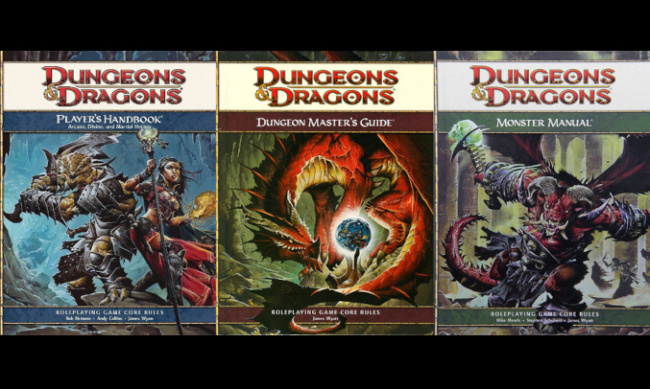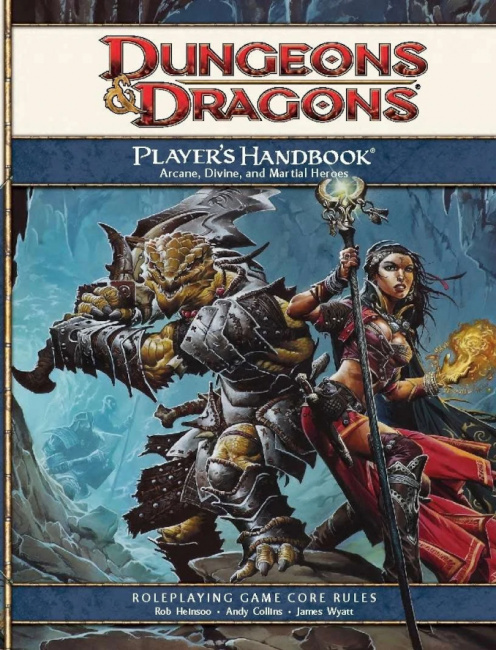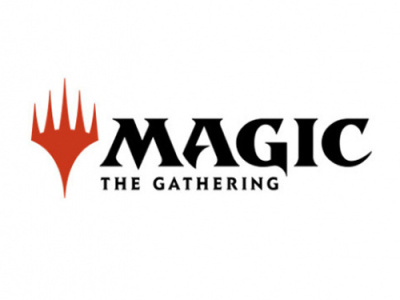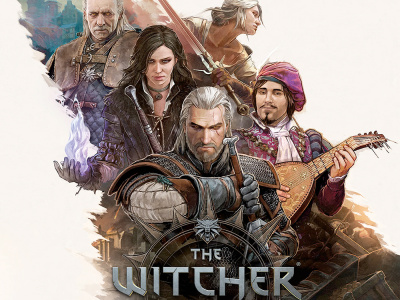Rolling for Initiative is a weekly column by Scott Thorne, PhD, owner of Castle Perilous Games & Books in Carbondale, Illinois and instructor in marketing at Southeast Missouri State University. This week, Thorne looks back at Dungeons & Dragons 4th Edition and finds a way it was ahead of its time.
Dungeons & Dragons 4E was ahead of its time, at least in one respect. I had a discussion with a reporter about the various editions of Dungeons & Dragons last week, and the topic of the general vilification of 4E came up. I can find people who wax nostalgically over their 1st Edition half-elf fighters (myself included) and others that still seek out and want to play in 2E campaigns. There are also those who avidly purchase any 3E and 3.5E handbooks that they can lay their hands on, and of course, 5E has sold fantastically since it released last decade. Meanwhile, 4E gets very little love, as most of our customers refer to it disparagingly as Wizards of the Coast’s attempt to migrate video game concepts into a tabletop RPG and failing spectacularly.
I never had quite the distain for 4E that a lot of my customers did. I found it an interesting attempt to merge board game concepts with tabletop RPGs, though running the published modules proved problematic because whoever designed them opted to drop the linear progression of most published modules, and instead put separate encounters likely to involve combat into their own section of the book (which meant extra flipping back and forth for the DM). Still, I found the published adventures playable, although creating homebrewed adventures proved more difficult.
There is one concept that 4E introduced that was far ahead of its time, and that was the idea of D&D as a spectator event. Granted, people had watched other people play D&D in the past, although generally not for very long, just until a spot opened up for them. Setting up games for one group of people to play while another watches has come into its own with streaming programs such as Dimension 20, Dungeons and Daddies, and of course, Critical Role.
In 2011, the Wizards Play Network introduced the concept of the Lair Assault for 4E. The WPN positioned the seven Lair Assault scenarios and extremely challenging adventures designed for 2-4 players to finish in a couple of hours. However, the idea behind Lair Assault was that the scenarios, while short, were designed to be so difficult to complete that players would have to attempt them multiple times, learning from each attempt, before completing them.
But it was the concept of encouraging non-players to come watch that, looking back, I found unique. The focus for RPG play up to that time had always been on participation. The WPN, in its directions for Lair Assault, encouraged stores to recruit their best local players to participate and invite other local players to come watch top-tier players attempt an extremely challenging adventure, in effect having one small group playing through the adventure while another group got the opportunity to watch a master class in RPG play.
I'm not sure how other stores did with the program. I would assume not well, since it only lasted for two years and we found it quite difficult to recruit the same players to come multiple times to play through and complete the adventure. I only remember one person coming in to watch the game, but still the basic concept, though flawed, was there. It just took the advent of the Web and the development of podcasting techniques which made it relatively easy for anyone who wants to put their own gaming sessions online.
Was Lair Assault more successful in other stores than here? Was it the start of D&D as an organized spectator event or was something else the catalyst? Send your thoughts to castleperilousgames@gmail.com.
The opinions expressed in this column are solely those of the writer, and do not necessarily reflect the views of the editorial staff of ICv2.com.

Column by Scott Thorne
Posted by Scott Thorne on May 30, 2022 @ 2:26 am CT
MORE GAMES
'A Villainous Halloween' In-Store Event
August 15, 2025
Wizards of the Coast announced A Villainous Halloween , a new Magic: The Gathering Commander in-store WPN event.
Base Game, Expansions, Accessories
August 15, 2025
Asmodee will release The Witcher: Path of Destiny core game, expansions, and accessory pack.
MORE COLUMNS
Column by Scott Thorne
August 11, 2025
This week, columnist Scott Thorne notes a new twist in the Diamond Comic Distributors saga and shares his thoughts on the Gen Con releases that will make the biggest impacts.
Column by Jeffrey Dohm-Sanchez
August 7, 2025
ICv2 Managing Editor Jeffrey Dohm-Sanchez lays out the hotness of Gen Con 2025.









